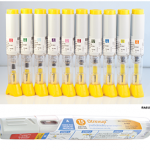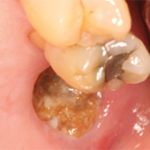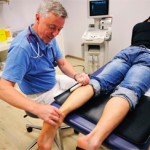Methotrexate has long been a cornerstone of therapy in rheumatoid arthritis. Two new, injectable methotrexate products may help some RA patients for whom oral methotrexate is not as effective or causes adverse effects. Rasuvo and Otrexup are prefilled, auto-injection devices that allow patients to give themselves subcutaneous injections of methotrexate without having to use a…







